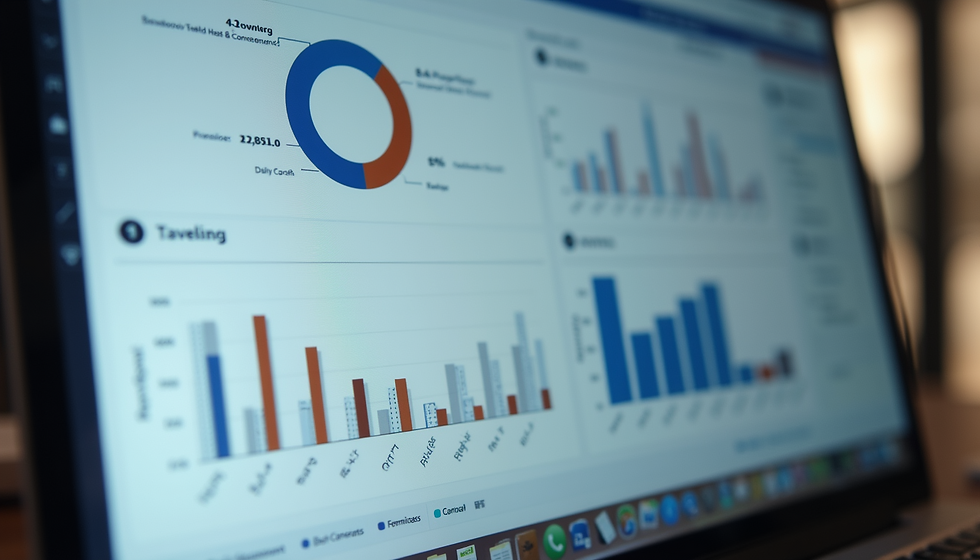Exploring Flexible Payment Plans to Meet Your Financial Needs
- Marketing
- May 15, 2025
- 3 min read
In today's fast-paced world, managing finances can feel overwhelming. With an ever-evolving landscape of payment services, consumers are looking for smart ways to handle their financial obligations more easily. Flexible payment plans have emerged as a practical solution, allowing individuals to buy what they need now while paying over time. This post explores the types of flexible payment services available, their benefits, and how they can help you achieve financial stability.
Understanding Flexible Payment Plans
Flexible payment plans allow consumers to pay for products or services over time instead of making one large payment upfront. This arrangement benefits both consumers and businesses by aligning payment schedules with cash flow needs.
These plans come in various forms, such as installment payments, subscription models, and deferred payment options. By breaking down payments into smaller, manageable amounts, consumers can afford larger purchases without the immediate financial burden.
The Rise of Payment Services
The surge in flexible payment options can be attributed to advancements in technology and changing consumer expectations. A recent survey revealed that 60% of online shoppers prefer businesses that offer multiple payment methods. As more consumers turn to online shopping, businesses realize that providing flexible payment options is essential to attract and retain customers.
Consumers desire simplicity and control in their financial transactions. Therefore, flexible payment services are not just convenient; they have become necessary for online retailers, healthcare providers, utilities, and educational institutions alike. For instance, a beauty salon offering a payment plan might see a 30% increase in customer bookings, demonstrating how such options foster loyalty.
Types of Flexible Payment Services
There are various types of flexible payment services, each designed to cater to specific financial needs:
Installment Plans
Installment plans allow consumers to pay for items through multiple smaller payments instead of one lump sum. These plans are particularly helpful for high-cost purchases like electronics, furniture, or medical expenses. Consumers can typically choose the payment frequency—weekly, or monthly—making it easier to integrate repayments into their budgets.
Buy Now, Pay Later (BNPL)
The Buy Now, Pay Later service has gained traction, allowing consumers to make immediate purchases and defer payment, often interest-free, if settled within a specified timeframe. A study showed that 45% of consumers who use BNPL reported making extra purchases that they would have otherwise avoided.
Many BNPL services seamlessly integrate into online checkout processes, enabling consumers to access credit effortlessly.
Subscription Services
Subscription services now extend beyond just media and entertainment. Consumers can subscribe to various products or services, such as meal delivery or household essentials, paying on a routine basis. This model allows users to budget effectively.
Deferred Payments
Deferred payment options allow customers to start using a service or product without immediate payment. This arrangement is particularly useful in education, enabling students to enroll in courses without upfront tuition.
For instance, a college may allow students to start classes and defer tuition payments by six months, giving them time to secure funding or settle into a job.
Benefits of Flexible Payment Plans
The advantages of flexible payment plans extend beyond mere convenience; they provide several important benefits:
Improved Budgeting: Spreading payments out helps consumers manage their finances better and avoid overwhelming expenses all at once.
Access to Larger Purchases: Flexible options empower individuals to invest in items they might have thought were out of reach, such as high-quality appliances or vehicles.
Enhanced Cash Flow: For businesses, offering flexible payment plans can increase cash flow and reduce cart abandonment—42% of shoppers abandon their carts due to high upfront costs.
Heightened Customer Loyalty: By catering to varying financial circumstances, businesses can cultivate a loyal customer base, encouraging repeat purchases.
Important Factors to Consider Before Choosing a Payment Plan
While flexible payment arrangements offer numerous benefits, consumers should consider a few vital aspects before committing:
Interest Rates and Fees
Not all payment plans are alike. Some may involve hidden fees or high-interest rates if payments fall behind. Always read the terms and conditions to prevent any unexpected costs. For instance, a plan with 20% APR on missed payments can add significant costs over time.
Credit Impact
Some flexible payment options necessitate a credit check, which can influence your credit score. Before enrolling, understand how the plan might affect your credit standing.
Overall Financial Health
Review your overall financial situation before entering a payment plan. Ensure that the commitment to regular payments fits your budget and won't lead to further financial stress.
Final Thoughts
Flexible payment plans signify a significant shift in how consumers manage finances. With a variety of options available, individuals can find plans tailored to their unique needs. By utilizing these services wisely, you can improve cash flow, access bigger purchases, and navigate financial concerns more comfortably.
As technology propels payment solutions forward, staying informed about your choices will help you make decisions that enhance your financial well-being.





Comments